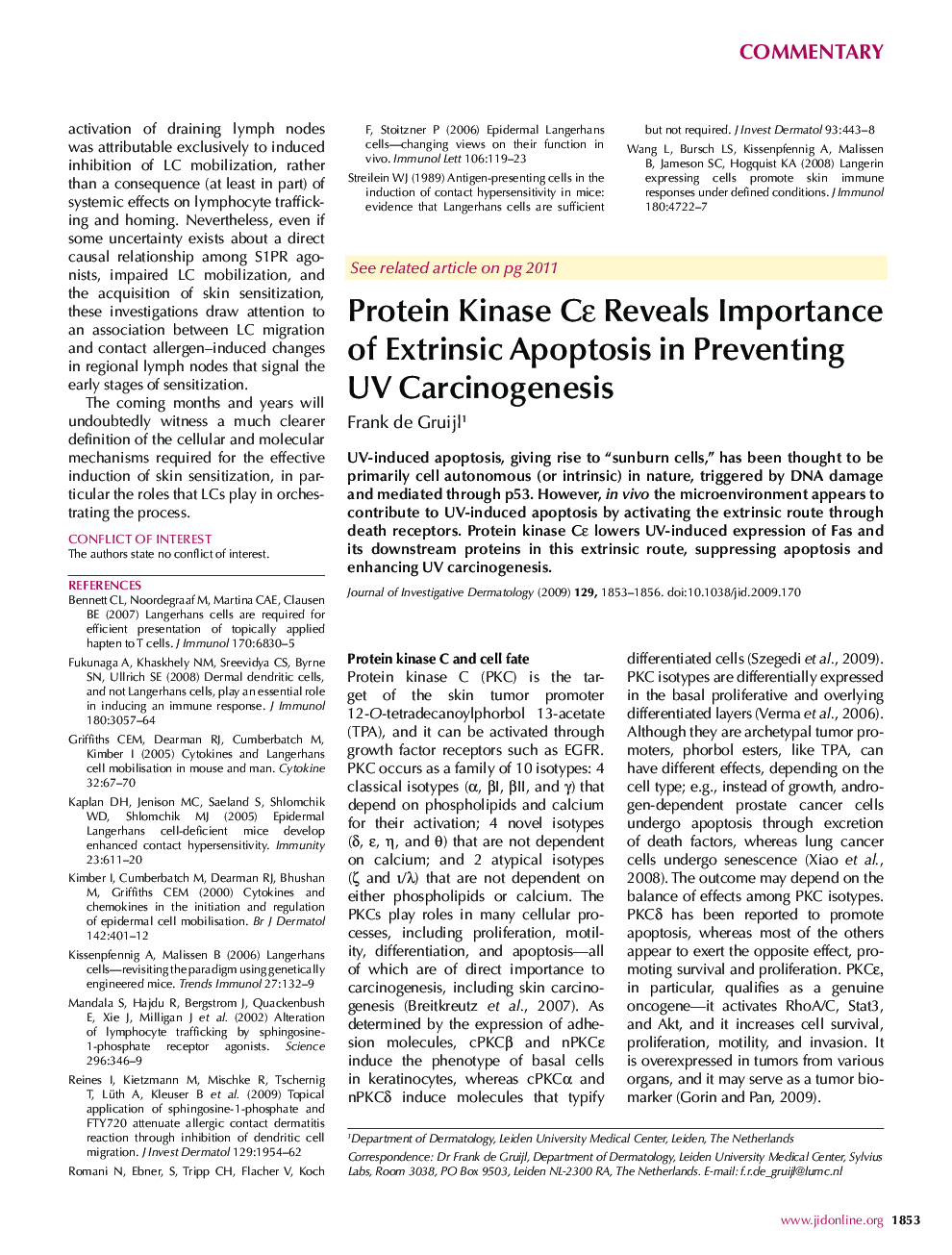| Article ID | Journal | Published Year | Pages | File Type |
|---|---|---|---|---|
| 3216824 | Journal of Investigative Dermatology | 2009 | 4 Pages |
Abstract
UV-induced apoptosis, giving rise to “sunburn cells,” has been thought to be primarily cell autonomous (or intrinsic) in nature, triggered by DNA damage and mediated through p53. However, in vivo the microenvironment appears to contribute to UV-induced apoptosis by activating the extrinsic route through death receptors. Protein kinase Cε lowers UV-induced expression of Fas and its downstream proteins in this extrinsic route, suppressing apoptosis and enhancing UV carcinogenesis.
Related Topics
Health Sciences
Medicine and Dentistry
Dermatology
Authors
Frank de Gruijl,
